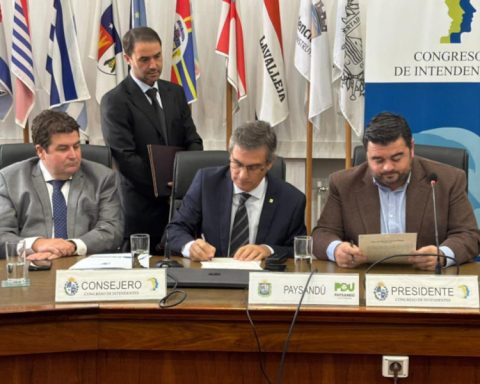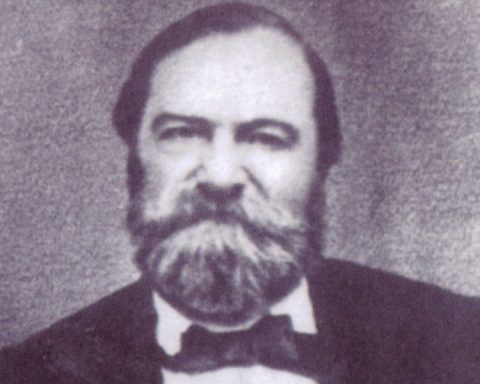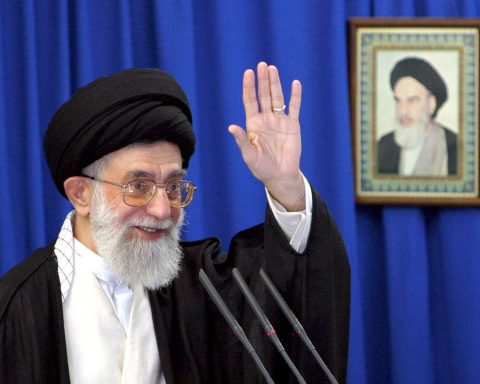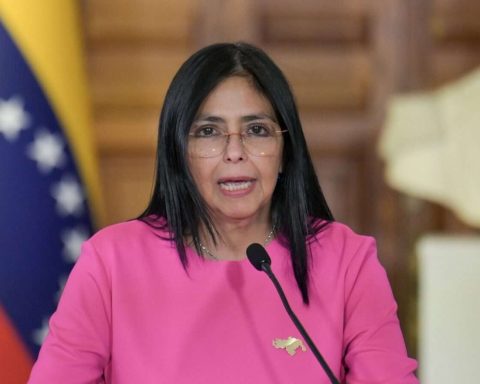Global Americans is a research center whose focus is on human rights, democracy and social inclusion. His conception as think tank It leads him to seek comprehensive solutions in a kind of laboratory of ideas that drives to change the reality of the countries of the Americas.
Recently, the president of this organization, Guy Mentel, visited Punta del Este as part of the meeting Test & Invest, Uruguay Business Summit, organized by the IDB and the Uruguayan government. “There I got to know first-hand the successful Uruguayan entrepreneurial and business ecosystem,” he said in dialogue with The Observer.
But this was not the only objective of his trip. Mentel arrived with the intention of deepening the work that Global Americans has been doing in Uruguay, more specifically in relations between this country and the United States. “During my stay I had the opportunity to meet with civil society actors, private sector leaders, government ministers and diplomats,” said the businessman and assured that the relationship between the two nations “still has a lot of potential to develop.” The fight against climate change, trade and regional democratic strengthening are some of the issues that are in his portfolio and he referred to these and other aspects in an interview with The Observer. Below is a summary of the exchange.
What would you say is the state of the bilateral relationship between Uruguay and the United States?
Relations between Uruguay and the United States are solid. Uruguay is a natural partner of the United States. The commitment to democracy, the defense of human rights and respect for the rule of law are the fundamental basis of the bilateral relationship. In addition, Uruguay and the United States share a broad agenda that ranges from extensive trade in goods and services, cooperation on defense and human rights issues, to an important network of cultural and academic exchanges that unite both countries. Moreover, the administrations of President Lacalle Pou and President Biden have shown great affinity. Last April, after a series of high-level meetings between officials from both governments, Secretary of State Anthony Blinken met in Washington, DC with Foreign Minister Francisco Bustillo.
Many in Washington see Uruguay as a bastion of stability and democracy. With the Biden administration and the current US Congress, opportunities to increase cooperation on issues like fighting climate change abound. It is important to point out that there is a great bipartisan consensus in the desire to deepen relations between the two countries.
How is the government of Luis Lacalle Pou seen today from Washington?
There is a broad consensus between Democrats and Republicans that Uruguay represents a beacon of democracy in the Western Hemisphere. From its political and economic stability, through its energy transition, Uruguay is considered a success story and an example for the region. Washington recognizes the importance of continuing to deepen relations between the two countries. Recently, senators such as the Democratic Senator for Virginia, Tim Kaine, and the Republican Senator for Florida, Marco Rubio, have emphasized the importance of working more closely with President Lacalle Pou, who has repeatedly demonstrated his government’s willingness to increase the flow trade between the two countries.
What business opportunities do you see between Uruguay and the US?
Uruguay and the United States have an important and rich commercial relationship. In 2021, the US market was the fourth destination for Uruguayan goods exports, and if exports of goods and services are combined, it was the second destination in the world. The Uruguayan software industry is highly valued in the United States. In 2020 alone, Uruguay exported US$902 million worth of software to the United States, which represents 74% of its total exports.
Uruguay is increasingly present on the Silicon Valley radar, there is significant confidence in the country’s potential. The comparative advantages in terms of talent, legal certainty, political and economic stability mean that several American companies such as IBM, Microsoft, among others, are already installed in Uruguay.
To further deepen trade relations between the two countries, and while they continue to have talks about a possible FTA between the United States and Uruguay, it is important to work together to update the TIFA in areas such as trade facilitation, good regulatory practices, the fight against corruption and digital commerce. This type of agreement will reduce costs and risks, translating into more US investment in Uruguay.
How do you assess the recent visit of the Assistant Secretary for the Western Hemisphere of the US Department of State, Brian A. Nichols, to Uruguay?
My assessment is very positive. In addition to meeting with senior Uruguayan government officials, Undersecretary Nichols met with President Luis Lacalle Pou, in an effort to show that the Biden administration is truly committed to Uruguay.
In talks between US and Uruguayan leaders, the US delegation reiterated its commitment to support Uruguay in various lines of action, including President Lacalle Pou’s economic agenda. In particular, the ongoing negotiations to update and expand the bilateral Trade and Investment Framework Agreement (TIFA) were discussed.
It is important to note that the visit also comes at a very special time for the region, following a series of presidential elections that marked a turn to the left, most recently with the triumph of the now-elect president Lula de Silva in Brazil. In the United States, there is interest in cooperating and working closely with these new Latin American leaders on issues related to climate change, the rule of law, development, and social inclusion.
How is Uruguay’s strategic rapprochement with China seen from Washington?
In the United States Congress, there is concern about the influence that China, as well as other authoritarian regimes such as Russia, are exerting on Latin America and the Caribbean. At this point there is enough evidence that points to how these regimes are not only interested in increasing the flow of trade and investment but also in exerting political influence over third countries, sometimes exerting their influence to erode democratic processes and institutions and their rule of law. There are strategic sectors such as national defense and the implementation of technologies such as 5G in particular that cause a lot of concern among congressmen in Washington. From the US perspective, liberal democracies like Uruguay must be attentive and vigilant in the face of these advances.
At the same time, the United States must continue to offer a clear and present alternative. The Biden administration and the main actors in the US Congress are actively working to deepen the relationship with Latin America and the Caribbean, and continue to demonstrate to the partners in the region that the attention of the United States does not wane and that the opportunities for cooperation are many. Visits by congressmen and high-level visits by key players from the US State Department and the White House, as we have recently seen with the visit of Under Secretary Nichols, are a clear signal to the region that the management is determined to get involved. These trips must be accompanied by tangible progress and a clear demonstration of the mutual benefits of engagement.


















